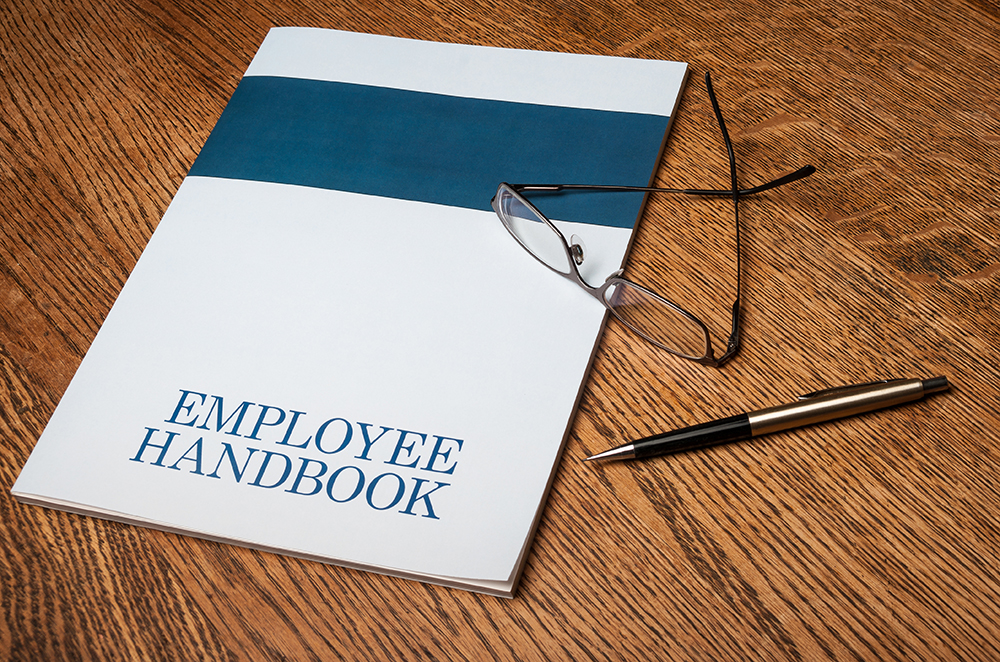I often tell clients one of the most important documents they need to have is an employee handbook, and it needs to be up to date and legally compliant. Why? An out-of-date, an inaccurate, or a poorly written handbook really can do more harm than good. If you don’t have a handbook, put one in place. If you have one and haven’t reviewed it in the past year, now is the time to do so.

Top 5 Reasons to Update Your Handbook
1. Key piece of evidence. In almost every employee-related lawsuit, the employee handbook—or at least certain policies from it—is an important piece of evidence. For example, if an employee is terminated for poor performance, policies on disciplinary action and employee conduct would be important for a jury or other decision maker to see.
2. Changes to state and federal laws. There have been many changes to state and federal laws, new laws, and court interpretations of laws that may affect your existing employment policies. The laws are always evolving at both the state and federal level, and courts’ and agencies’ interpretations of older laws evolve as well. Over the past several years, there have been a flurry of employment laws enacted affecting employer policies, and you need to be sure you have addressed them in your handbooks.
For example, the new Massachusetts Paid Family and Medical Leave (PFML) law requires you to inform employees that if they use employer-provided paid time off (PTO) for a qualifying reason, such use will count against their annual PFML leave allotment. Further, you need to tell employees that if they choose to use employer-provided PTO to cover such absences, they cannot also collect a paid benefit from the state.
This is just the tip of the iceberg. Since 2014, there have been a number of other laws that affected employee handbooks and require changes, including Domestic Violence Leave, Massachusetts Paid Sick Leave, Parental Leave, and the Pregnant Workers Fairness Act. Despite the time that has passed since these laws were adopted, it isn’t uncommon for an employer handbook to be missing important changes related to the laws.
3. They set the tone. Even if you never face a lawsuit from a current or former employee, your handbook provides employees with important information about your business and its mission. In addition to setting out rules (see reason #4), handbooks often start by providing a history of the business and/or information about its mission. This can often be an employee’s first introduction to the business culture and history.
4. They set expectations for employees. Businesses have rules, and they expect employees to follow them. The handbook is a great place to communicate your workplace rules to employees so they know what is expected of them and what the consequences will be for failing to do what is expected.
5. They communicate where to go. It’s difficult for HR employees to keep up with all of the changes to the state and federal laws, never mind other employees. The handbook is a valuable resource for employees who need to know things such as how and where to bring a complaint, how to request time off, and what leave benefits they may be entitled to. The handbook is the place to communicate that information.
Bottom Line
As we put 2020 behind us, now is a good time to review your employee handbook and make sure it accomplishes what you want it to and is compliant with all state and federal laws. Handbooks are not a one-size-fits-all approach, and, as a result, we recommend you have it reviewed by your labor and employment counsel.
Amelia J. Holstrom is a partner at the firm of Skoler, Abbott & Presser, P.C., in Springfield, Massachusetts. Amelia can be reached at aholstrom@skoler-abbott.com.
